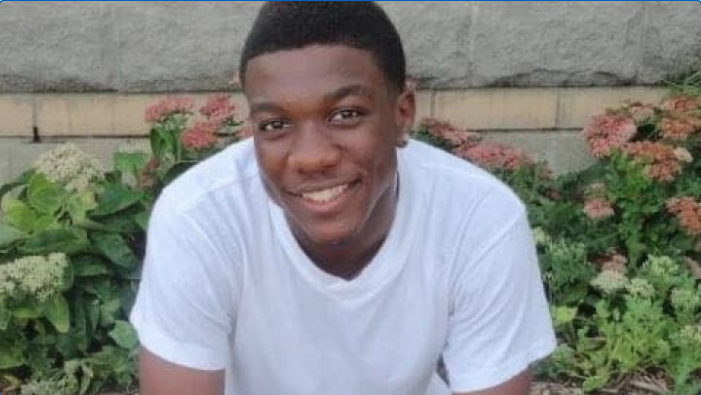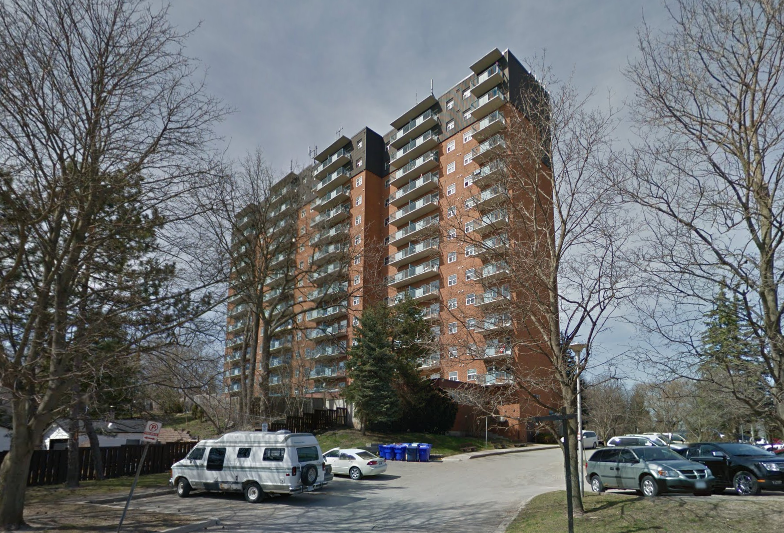An investigation into the death last month of Caleb Tubila Njoko, 26, is continuing, the province’s police watchdog says, and members of the public are being asked to come forward with any information they may have.

Njoko died in hospital three days after falling from the 15th-floor balcony of his mother’s Walnut Street apartment during an interaction with London police on the night of May 5.
According to the Special Investigations Unit (SIU), two civilian witnesses have been interviewed as part of the investigation, along with three witness officers.
The subject officer, the agency says, declined to be interviewed by investigators, but provided a copy of her duty notes.
Under the Police Services Act, subject officers can’t legally be forced to be interviewed, and can decline to provide their notes.
The SIU says investigators have also canvassed the area to locate evidence and other possible witnesses. Three investigators and one forensic investigator have been assigned to the probe.
Officers had responded to 85 Walnut St., around 11:15 p.m. on May 5 for a report of a person in distress, the SIU says.
Njoko’s mother, Nelly Wendo, told Global News Radio 980 CFPL earlier this month that she had contacted emergency services over concerns about her son’s mental health.
“I wanted to call an ambulance, but in Canada, you have to call 911,” she said in her native French.
Wendo said she had taken her son in after being contacted by his friends, who said he had started acting out.
When officers arrived at the apartment, Wendo says her son slammed the front door and barricaded himself inside the unit, telling police, “I don’t want to see you.”
“Police want to help you, you’re making your mother suffer,” she recalled saying to him over the phone. Police had surrounded the building, she said.
Before he fell, Wendo says her son’s final words to her were, “I know that you love me.”

Get daily National news
Njoko was rushed to the hospital with life-threatening injuries. He was pronounced dead three days later on May 8. The SIU says a post-mortem examination was conducted on May 10.
Wendo told Global News she believed a run-in her son had with police a week earlier played a role in his death, adding that because police had sent multiple officers, she felt they were treating him like a criminal instead of someone in need of help.
Njoko had been taken into custody on April 28 for attempting to commit a dual procedure offence and obstructing a peace officer for allegedly trying to steal the vehicle of a pizza delivery driver.
“I want to find a lawyer,” Wendo said. “Caleb is dead because of them, and I need justice.”
The SIU says anyone who may have information about the case is being urged to contact the lead investigator at 1-800-787-8529.
“The SIU is working diligently to ensure the investigation is concluded, and its findings released, as expeditiously as possible,” read an agency release.
Njoko’s death came weeks before that of Regis Korchinski-Paquet in Toronto.
Korchinski-Paquet, 29, died in late May after falling from her 24th floor balcony while police were in her home. Officers had responded to three “frantic” 911 calls, authorities said.
Her family has questioned the role of police in her death. Korchinsky-Paquet’s mother has said she called police to the apartment and asked them to take her daughter to the Centre for Addiction and Mental Health.
The SIU is still investigating.
The investigations into their deaths come amid worldwide protests against systemic racism and police brutality targeting Black and Indigenous people, and calls for police department budgets across Canada to be defunded and be redirected into community resources.
In London, the police budget has grown some 35 per cent over the last decade, a Global News review found. At the same time, the entire city operating budget grew about 14 per cent.
Police Chief Stephen Williams says the funding model for policing in London and Ontario is based upon what police services are legislated and required to do pursuant to regulations in the Police Services Act.
However, he added that much of what police do is not what would be considered “traditional police work.”
“There’s a number of social issues, particularly in this city but not just in London, revolving around homelessness, addiction, mental health and all that,” Williams said. “We are still the only 24-7 service that responds to these complaints. We are the 911 for these problems.
“We never asked for this portfolio but we are doing the job of social workers. Our officers do it because they’re professionals and they’re committed, and when they get the call, they answer the call.”
— With files from Jacquelyn LeBel and Sawyer Bogdan and The Canadian Press














Comments